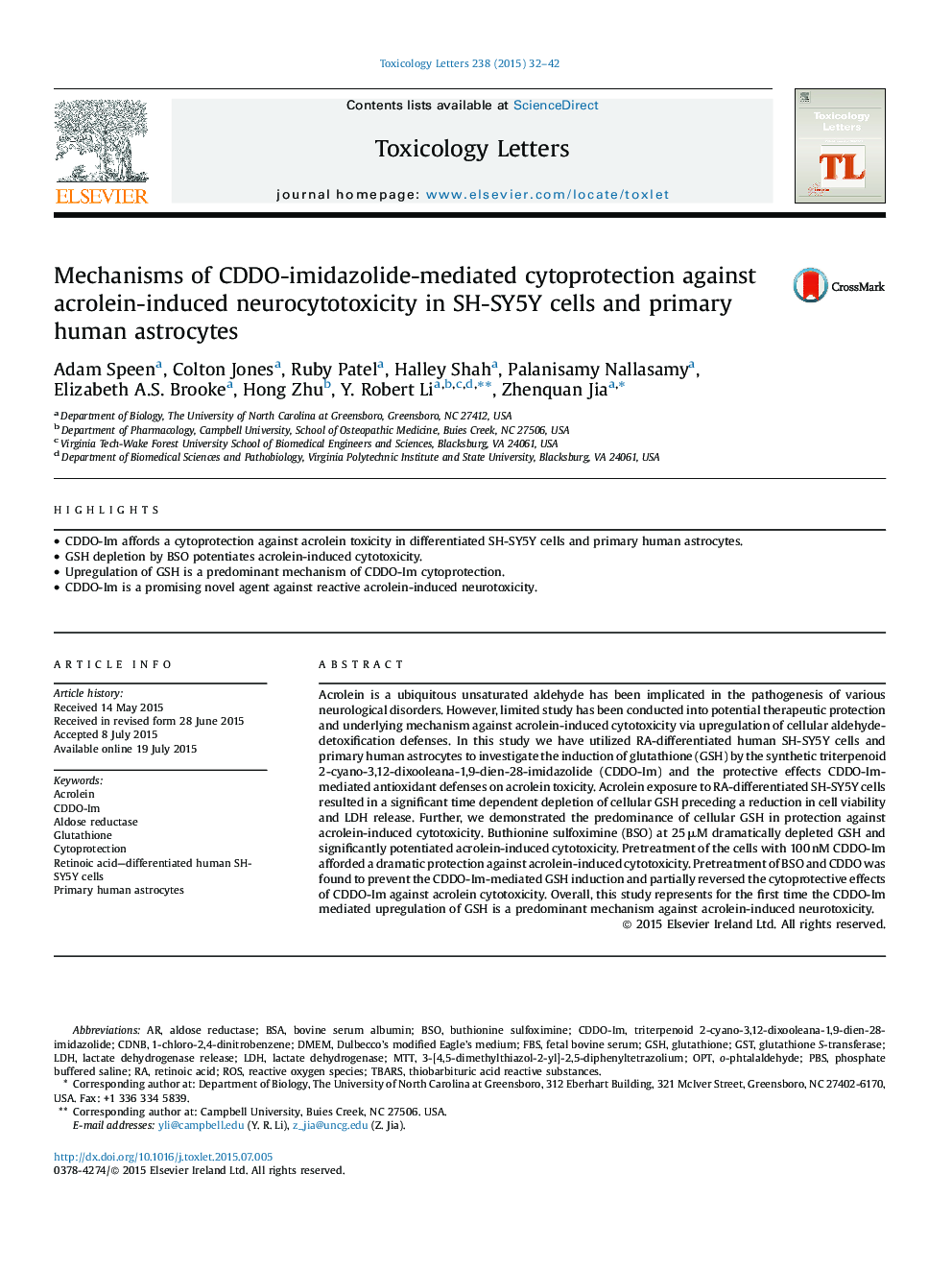| Article ID | Journal | Published Year | Pages | File Type |
|---|---|---|---|---|
| 2598667 | Toxicology Letters | 2015 | 11 Pages |
Abstract
Acrolein is a ubiquitous unsaturated aldehyde has been implicated in the pathogenesis of various neurological disorders. However, limited study has been conducted into potential therapeutic protection and underlying mechanism against acrolein-induced cytotoxicity via upregulation of cellular aldehyde-detoxification defenses. In this study we have utilized RA-differentiated human SH-SY5Y cells and primary human astrocytes to investigate the induction of glutathione (GSH) by the synthetic triterpenoid 2-cyano-3,12-dixooleana-1,9-dien-28-imidazolide (CDDO-Im) and the protective effects CDDO-Im-mediated antioxidant defenses on acrolein toxicity. Acrolein exposure to RA-differentiated SH-SY5Y cells resulted in a significant time dependent depletion of cellular GSH preceding a reduction in cell viability and LDH release. Further, we demonstrated the predominance of cellular GSH in protection against acrolein-induced cytotoxicity. Buthionine sulfoximine (BSO) at 25 μM dramatically depleted GSH and significantly potentiated acrolein-induced cytotoxicity. Pretreatment of the cells with 100 nM CDDO-Im afforded a dramatic protection against acrolein-induced cytotoxicity. Pretreatment of BSO and CDDO was found to prevent the CDDO-Im-mediated GSH induction and partially reversed the cytoprotective effects of CDDO-Im against acrolein cytotoxicity. Overall, this study represents for the first time the CDDO-Im mediated upregulation of GSH is a predominant mechanism against acrolein-induced neurotoxicity.
Related Topics
Life Sciences
Environmental Science
Health, Toxicology and Mutagenesis
Authors
Adam Speen, Colton Jones, Ruby Patel, Halley Shah, Palanisamy Nallasamy, Elizabeth A.S. Brooke, Hong Zhu, Y. Robert Li, Zhenquan Jia,
